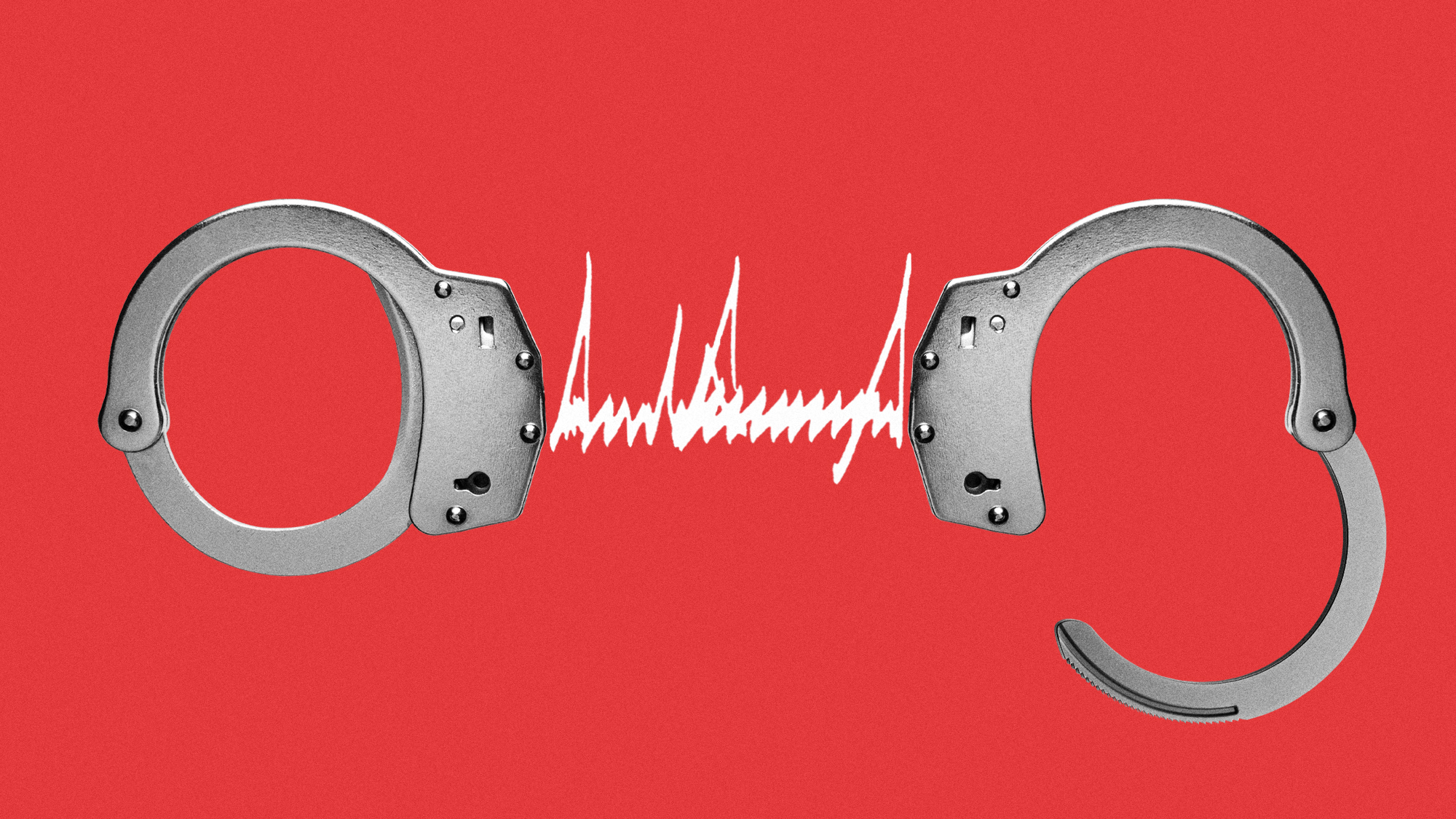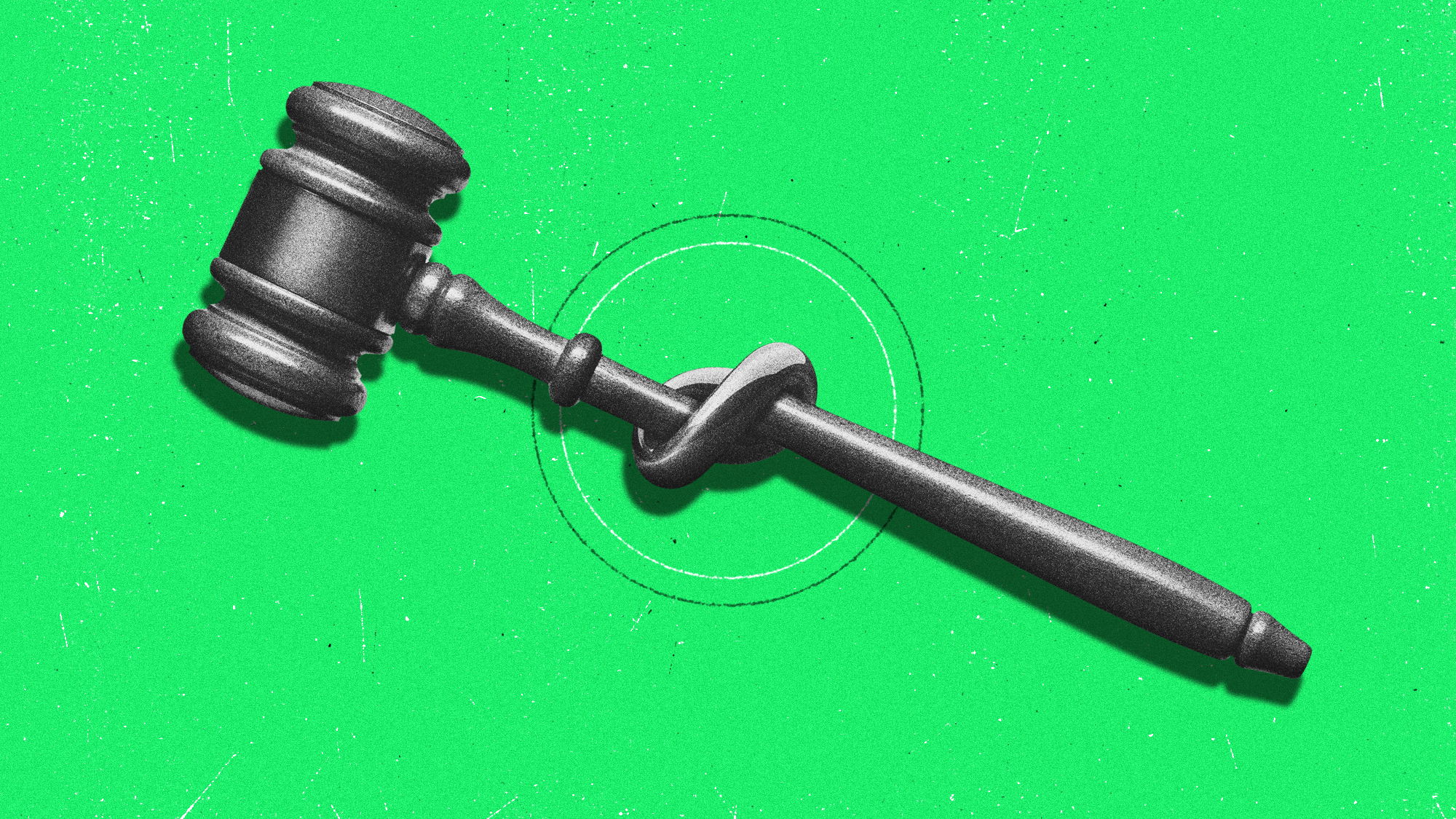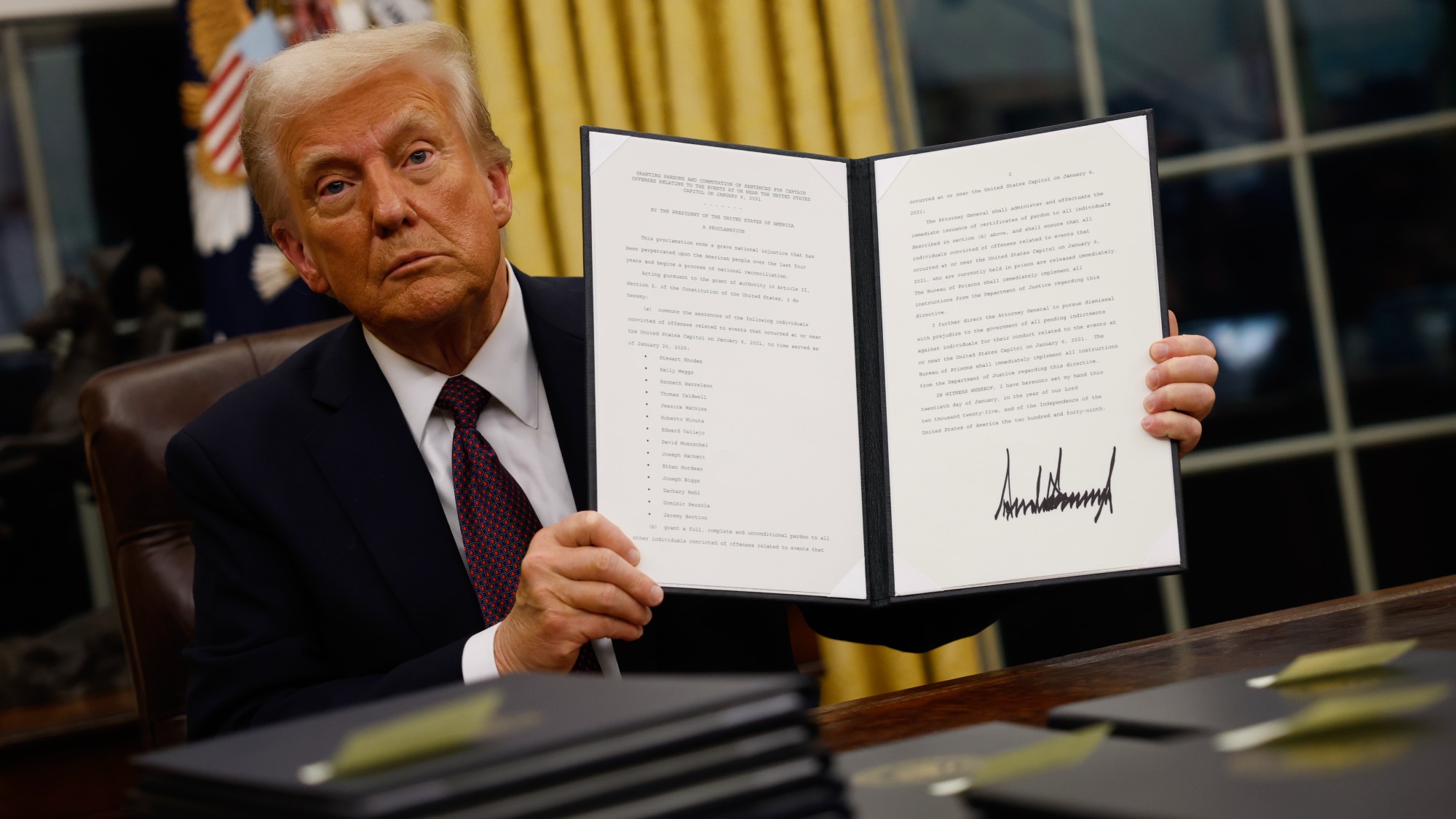Appellate court grants Justice Department access to seized classified files in blow to Trump, trial judge

A free daily email with the biggest news stories of the day – and the best features from TheWeek.com
You are now subscribed
Your newsletter sign-up was successful
A three-judge panel of the 11th Circuit U.S. Court of Appeals unanimously sided with the Justice Department on Wednesday in its fight with former President Donald Trump over access to about 100 classified documents the FBI took from Trump's Mar-a-Lago club in a court-approved Aug. 8 search.
The appellate court, overruling U.S. District Judge Aileen Cannon, decided that the Justice Department can use those documents in its criminal investigation of Trump's document handling, and shield them from Trump's lawyers and the special counsel Cannon appointed to review the larger poll of 11,000 seized documents.
Trump's legal team did not immediately say if they will appeal the ruling to the Supreme Court. Typically, plaintiffs can ask an entire circuit court to re-hear an appeal en banc, but the 11th Circuit appears not to allow that.
The Week
Escape your echo chamber. Get the facts behind the news, plus analysis from multiple perspectives.

Sign up for The Week's Free Newsletters
From our morning news briefing to a weekly Good News Newsletter, get the best of The Week delivered directly to your inbox.
From our morning news briefing to a weekly Good News Newsletter, get the best of The Week delivered directly to your inbox.
The three-judge panel, which includes two Trump appointees, handed down "a start repudiation" of Trump's legal arguments, The Associated Press reports, and "was unsparing toward Cannon," Politico adds. The appellate ruling has "a matter-of-fact tone to it," but reading it is "like waking from a nightmare" after Cannon's "truly heart-stoppingly bad set of opinions," former federal prosecutor Harry Litman told MSNBC. For Trump, "this is the worst day he's ever had, legally."

The appellate court shot down Cannon's various justifications for blocking the Justice Department from using the classified documents — including that Trump, as a former president, was entitled to special treatment; and that the government was wrong about the national security threat from her ruling.
"It is self-evident that the public has a strong interest in ensuring that the storage of the classified records did not result in 'exceptionally grave damage to the national security,'" the judges wrote, and ascertaining that "necessarily involves reviewing the documents, determining who had access to them and when, and deciding which (if any) sources or methods are compromised." The lower court "abused its discretion in exercising jurisdiction" over the classified documents, the panel added.
The ruling amounts to a rare judicial "benchslap," "litigation disaster tour guide" Akiva Cohen assessed. The Justice Department can appeal the rest of Cannon's ruling, but this decision means "everything that happens in front of Cannon from here on out is irrelevant," because the DOJ can use the documents in the meantime and "nobody really cares about the special master's review of anything but the classified documents."
A free daily email with the biggest news stories of the day – and the best features from TheWeek.com
Peter has worked as a news and culture writer and editor at The Week since the site's launch in 2008. He covers politics, world affairs, religion and cultural currents. His journalism career began as a copy editor at a financial newswire and has included editorial positions at The New York Times Magazine, Facts on File, and Oregon State University.
-
 The Gallivant: style and charm steps from Camber Sands
The Gallivant: style and charm steps from Camber SandsThe Week Recommends Nestled behind the dunes, this luxury hotel is a great place to hunker down and get cosy
-
 The President’s Cake: ‘sweet tragedy’ about a little girl on a baking mission in Iraq
The President’s Cake: ‘sweet tragedy’ about a little girl on a baking mission in IraqThe Week Recommends Charming debut from Hasan Hadi is filled with ‘vivid characters’
-
 Kia EV4: a ‘terrifically comfy’ electric car
Kia EV4: a ‘terrifically comfy’ electric carThe Week Recommends The family-friendly vehicle has ‘plush seats’ and generous space
-
 Trump vs. BBC: what’s at stake?
Trump vs. BBC: what’s at stake?The Explainer The US president has filed a $10 billion lawsuit over the editing of Panorama documentary, with the broadcaster vowing to defend itself
-
 Is it time to rethink the US presidential pardon?
Is it time to rethink the US presidential pardon?Talking Point Donald Trump has taken advantage of his pardon power to reward political allies and protect business associates, say critics
-
 President Trump: ‘waging war’ on Chicago
President Trump: ‘waging war’ on ChicagoTalking Point Federal agents are carrying out ‘increasingly aggressive’ immigration raids – but have sanctuary cities like Chicago brought it on themselves?
-
 The countries around the world without jury trials
The countries around the world without jury trialsThe Explainer Legal systems in much of continental Europe and Asia do not rely on randomly selected members of the public
-
 ICC under attack: can court continue to function?
ICC under attack: can court continue to function?Today's Big Question US sanctions 'designed not only to intimidate court officials and staff' but 'also to chill broader cooperation', say rights group
-
 Birthright citizenship under threat in US
Birthright citizenship under threat in USThe Explainer Donald Trump wants to scrap the policy he calls a 'magnet for illegal immigration'
-
 ABC News to pay $15M in Trump defamation suit
ABC News to pay $15M in Trump defamation suitSpeed Read The lawsuit stemmed from George Stephanopoulos' on-air assertion that Trump was found liable for raping writer E. Jean Carroll
-
 Judge blocks Louisiana 10 Commandments law
Judge blocks Louisiana 10 Commandments lawSpeed Read U.S. District Judge John deGravelles ruled that a law ordering schools to display the Ten Commandments in classrooms was unconstitutional
